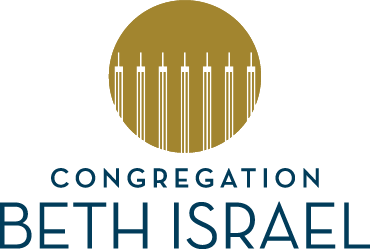Pursue Peace

Pursue Peace
From the desk of Rabbi David Lyon
The word “mitzvah” means commandment. It’s also a “good deed,” because every mitzvah, whether it’s a positive or negative commandment, leads us to goodness. For example, “Honor your father and your mother,” or “Do not put a stumbling block before the blind,” are examples of positive or negative commandments that lead us to do the right thing. When should we do them?
The rabbis taught us that we’re not obligated to seek out opportunities to do every mitzvah; rather, we should do them when we encounter them. In Deuteronomy 22, we read, “Do not remain indifferent,” or “Do not hide yourself.” When we encounter a situation that triggers a need, we should do the mitzvah that’s required to be done. Don’t misunderstand; every day is filled with opportunities to do a mitzvah, including honoring parents, respecting teachers, learning well, welcoming strangers, caring for the poor, etc.
The exception is Peace. In the case of all other mitzvot (commandments), we need not go in pursuit of them. But in the case of Peace, we’re commanded to “seek peace” wherever we happen to be, “and pursue it” if it is elsewhere (Bemidbar Rabbah 19, 27).
Beginning at home between family members, respectful speech, good manners, and shared values contribute to well-being that goes with them when they leave the house. A child who feels honored, honors others. A child who knows love, expresses empathy. The opposite is also true, and too often a child who is berated at home is a bully at school. A child who doesn’t know love can’t feel another child’s needs. A child who is taught to hate a stranger finds it easy to pick on those who are different. Our obligation is to make peace where we are if we plan to stay in place.
If peace is elsewhere, then we’re taught to pursue it there. High school graduates typically enjoy moving to live on campus by new rules; and young adults enjoy their first apartment and personal lifestyle. For those who can’t physically move, pursuing peace “elsewhere” can still be a trigger to seek new means of communication and therapy to build bridges to greater peace.
Very often, peace seems like a fleeting thing. Perhaps it is, and that’s why Judaism commands us to pursue it. When we’re tired of the pursuit, we are urged on to make it an even higher priority in our life. Every contribution we make to increase peace is part of a larger puzzle that others might join us in completing. To begin, spend less time on social media, far less time responding to posts and comments, and much more time engaging in conversations with people whom you know and can exchange thoughts and ideas with in real-time.
As Shabbat begins, I can wish you only Shalom, real peace, wholeness, and completeness. What will you pursue with others?
L’Shalom,
![]()
